#historic homes belgium
Explore tagged Tumblr posts
Text

Incredible home that was once the rectory of the 1911 Church of Our Lady in Brugge, West Flanders Province, Flanders, Belgium. 4bds, 4ba, 2,870,000 EUR / $3,123,135.

Beautiful marble fireplace and look at those huge floating cabinets in this spacious living room.


Huge shiny navy blue dining room with a lovely fireplace and dramatic built-in shelving.


The black & gold kitchen is amazing. Look at the old brick oven.

Very large bath with a marble tub.

Have you even seen a shower like this? Look at the tile.

Here's a pretty bedroom. It gets lots of light.

Attractive walk-in closet.

Matching en-suite. Love the floor.

Spacious attic bedroom with original beams.

Here's another finished attic room.

The basement has a stylish bar with a fireplace and built-in bench.
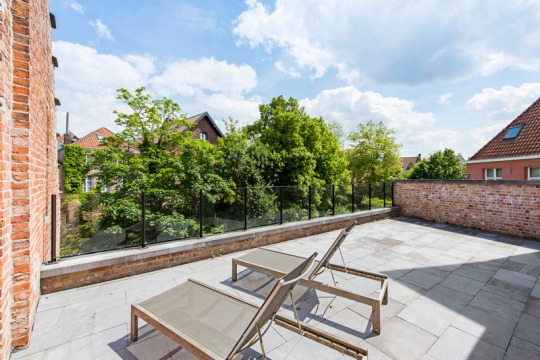
There's a roof top deck.
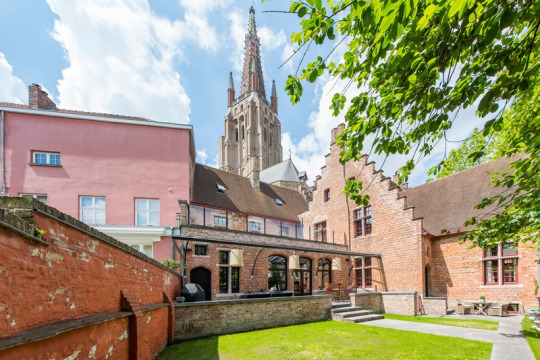
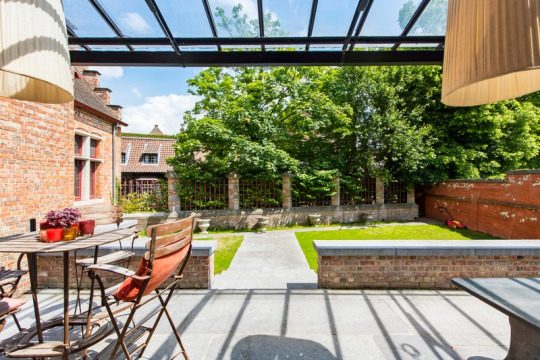

And, a covered patio in a private courtyard.

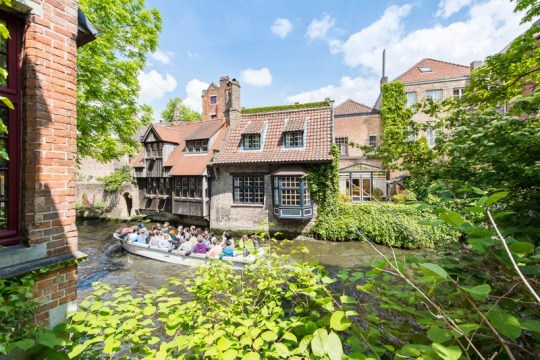
Isn't the canal delightful? What a beautiful property.
132 notes
·
View notes
Text
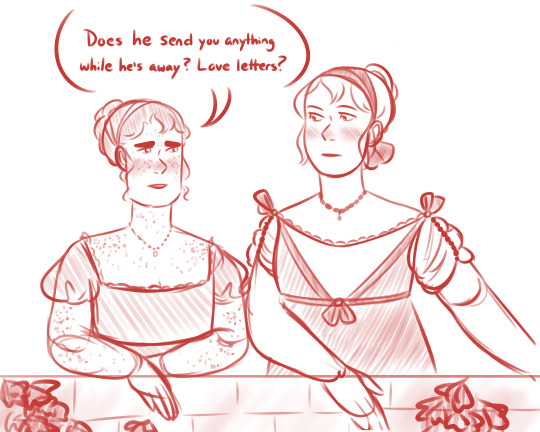

"Your brother treats me well, and I'm fond of him. What more could I want?"
Emma's brother wants her to marry Arthur so they can lay claim to some noble connections, while Arthur needs to have legitimate children to be heirs to the estate. The only trouble is Arthur is in love with someone else and Emma's not exactly head over heels for him either. Molly's a good confidante, but a little too romantic to understand.
#hetalia#historical hetalia#regency au#my art#hws belgium#hws england#hws ireland#nyo!ireland#engbel#engbelg#if arthur wasn't caught up with francis he'd probably actually fall for emma#and he does treat her well when he's actually at home don't get it twisted#but alas timing is timing#emma's pretty resigned to it bc she always figured she'd marry for pragmatic reasons#that of course doesn't mean she's particularly happy about it
66 notes
·
View notes
Text
re: hurricane helene hey, y'all. so... immense survivor's guilt, subsequent depression and an overall helpless malaise has made my presence on tumblr here weaker during this horrific time. but there's nothing like some good ol appalachian rage to light a fire under the proverbial ass so i'm back to push back on some of the bullshit i keep seeing get spread about what's happening in the aftermath of hurricane helene, and in western north carolina especially.
appalachia has always been low hanging fruit for the rest of the nation, and now that disaster has struck and we are even more vulnerable than we have been in a long, long time, bad actors are using us as a way to further their political bullshit and conspiracies.
please use some of the cited-information below the cut to push back on and educate any family members, friends or otherwise when you see them spreading misinformation. now is your chance to help appalachia, no matter where you are in the united states. myths, rumors and other flavors of horseshit regarding hurricane helene debunked under the cut. please reblog.
Let me just get my heart out of the way before we get into the nitty gritty, cause I got things to say. #1: "Why should we help these people? They get these storms there all the time. They didn't move away or do anything to prepare for this, and now it's our responsibility?"
These storms are not at all commonplace. For much of this area, especially WNC, this level of flooding and damage--spanning an area the size of Belgium between NC and TN--is largely unprecedented. Growing up, we get told our mountains protect us, that they shield us from the really bad, and that's because historically, they have. Hurricanes blow through, and they bring with them hella wind and rain, but nothing like this.
We do not have the infrastructure for this, physical or otherwise. So many of our homes, businesses and everything in between have been standing for more than a century, unkept and brittle. Dams are breaking or near breaking because they are not meant to hold this kind of water. Our roads tend to follow creeks and rivers and thereby have been completely washed out. Keep in mind that in the individual hollers, and in most of these small mountain towns, we only got one road. You go up holler one way, and you don't come out the other side of it; you leave the way you came because it's the only path to take.
We are not built for this. We were not ready for this. We could not have prepared for this. And even if by some miracle we all received some premonition about this disaster, telling us to "just move" is NEVER the answer to vulnerable people living in volatile environments, especially ones as impoverished as Appalachia. Fuck you.
#2 "Appalachians are lazy and just want handouts, anyway."
First off--which one is it? Are we poor, pitiful fodder for concern trolls who deserve more than we're getting, or are we lazy, needy, greedy people who deserve to rot? Can't have both.
Second off--we been hearing that about us since the dawn of time. Wasn't true then, ain't true now.
Appalachia has been verifiably exploited as long as there have been people to exploit, but that is a topic long since discussed here.
We don't WANT anything. We NEED it. Alongside the aid coming in through donations, official search and rescue and organized volunteer services, much of the boots on the ground are Appalachians themselves!! We take care of our own, and it's always been that way.
They got people on foot hiking up into the hollers to bring supplies to cut-off communities. They got pack mules passing otherwise impassable roads where no car nor other vehicle can tread to get lifesaving necessities to the hollers. Look around, and you'll find countless stories. Just in my personal circle alone, I got a sister bringing supplies up by foot, and her hiking group is moving through so much toxic mud that the soles of their fucking boots are melting. I got a brother in law taking chainsaws to downed trees to clear the path for supply deliveries. I got another sister meeting friends of mine at the state line to collect donations and distribute them by hand to counties all over WNC. We can do this, but we can't do it alone.
#3 "It's a conspiracy/It's not that widespread outside of Asheville because we don't see pictures of anywhere else."
It's happening. It's fucking happening.
You don't see pictures because many of us don't have reliable cell service right now, let alone wifi. Hell, even in perfect weather there's a joke that you better have a friend with a cell phone from each provider when you go out because only one of you is getting service at any given time in any given place. There is no way to document this from the inside for many folks at this point in time, and there is NO WAY IN from the outside.
As I mentioned--you got one road leading up the holler. That road is now gone. No one is making it up the mountain to take pictures of these horrific scenes, y'all. If they're going up the mountain its to care for their neighbors, to bring supplies to individuals and entire communities so isolated by the devastation that the only way they can be reached is on foot (or hoof!).
Which also brings me to my next counterargument: "Nothing is being done to help."
#4 "Volunteers are being turned away/Donations are being confiscated."
Volunteers are being DISCOURAGED from coming in out of state, but they're not being told to leave with a malicious intent. And they are not even being forcibly denied. They can still come, but it's really not a good idea. As I mentioned, these roads wasn't meant to take this kind of damage. They are falling apart, and all this extra traffic coming in on these streets barely hanging on is making them worse and making it harder for organized relief and rescue operations to actually get in there. People are getting stuck and taking away time and resources that could be going to survivors. Outsiders with good intentions are eating up the scarce gas and using up even scarcer water. Some of these places, like Black Mountain, physically do not have enough hands to manage and distribute the amount of donations being brought in in, so they're getting rerouted. Donations are not fucking being confiscated.
#5 "They aren't letting people be rescued/They're closing the airspace off."
The airspace is OPEN, with some temporary restrictions in place by the FAA for civilians and volunteers. Civilians can still access airspace in coordination with officials and emergency responders. What they ain't allowing is people just flying in willy nilly. What they ain't letting in is unauthorized air traffic that is clogging up airspace which otherwise needs to be used by official aircraft to bring in donations/S&R groups. Airspace is still accessible in the area, but it's not safe to just have everyone with a big heart trying to search and rescue, especially with no training, organization or proper skills. What they ain't letting happen is people trying to take trucks up obliterated roads that can't be traveled, no matter how confident you are in your vehicle. Christ, y'all. The point isn't to add more bodies to the count!
#6 "National Guardsmen are being told not to go."
The National Guard HAS been deployed.
And in numbers, too. What you're hearing is rumor of people asking to be deployed and being told no, because that's not how it works. That's not how any of this works. People can't just rush in unorganized. There is a system. There has always been a system.
#7 "But I saw TikToks of people coming to help and locals shouting them out of town!"
Oh, honey. No, what you saw was people doing what they LOVE to do in Appalachia: take poverty tours. Record how we live. Post their poverty (and now disaster) porn with thoughts and prayers and oh those poor creatures to get likes. That's been happening to us since before TikTok. Before the internet.
During FDR's administration, photographers from the Farm Security Administration went down to collect poverty porn and turn it into Hollow Folk, a collection of photographs which was then used by eugenicists and corporations alike to dehumanize us further so we could be exploited and relocated with the favor of the nation behind them.
We're done with it. We been done with it. And now, in this time of crisis where people are DEAD, you're clogging up our roads, taking up our gas, AND shoving cameras in our face. Y'all ain't from here and now more than ever y'all kinds need to get the FUCK out.
✨ FEMA ✨
FEMA deserves its own section, because holy shit. I'm mad that I'm about to defend the man in any capacity but it needs to be done. So, I'm gonna preface this by saying, largely, fuck FEMA. There are many valid complaints against FEMA and their inefficiency, but right now is not the time to use them as a tool of misinformation against Appalachia. We got enough problems without pouring the salt of government conspiracies into these raw, gaping wounds that barely even have bandaids applied to them right now.
SO. Let's get into it.
#8 "This is all planned and by design/Don't evacuate, because FEMA is just gonna take your land and mineral rights!"
If they wanted the fucking lithium or anything else for that matter, they would just enact Eminent Domain. They don't need elaborate schemes and """weather control""" to take it. They can just literally... do it. Did we all fail civics in middle school?
(And this is purely anecdotal so I have no proof of this, but a friend of mine told me a few days ago people were actually being told NOT to evacuate in Lake Lure because they didn't anticipate the flooding to be this bad.)
What y'all SHOULD be worried about are these companies and their "disaster investors" who swoop in like fucking vultures and try to get people to sell their land before FEMA has a chance to assist them. These companies prey on the vulnerable, offering them quick cash for their land and for far less than they'd get if they held out for FEMA's relief instead.
#9. "But... but FEMA is only giving out a piddly $750 in relief!"
Yes, they are giving out $750. INITIALLY. This $750 is initial relief money for immediate needs. Medicine, food, supplies. It is NOT all that's being allocated to folks. From FEMA's website:
This is a type of assistance that you may be approved for soon after you apply, called Serious Needs Assistance. It is an upfront, flexible payment to help cover essential items like food, water, baby formula, breastfeeding supplies, medication and other emergency supplies. There are other forms of assistance that you may qualify for to receive and Serious Needs Assistance is an initial payment you may receive while FEMA assesses your eligibility for additional funds. As your application continues to be reviewed, you may still receive additional forms of assistance for other needs such as support for temporary housing, personal property and home repair costs.
A service being offered in the meantime, for example, is for temporary housing and you can still currently apply for it!
Long-term disaster relief funds are not being released immediately. That does not mean they do not exist.
Here is what FEMA has already allocated for North Carolina alone.

Please note I said "allocated" but not "paid out." Which brings me to my next point.
#10 "FEMA is giving their relief money to undocumented immigrants!"
This is false, and you can verify this for yourself. Cash payouts to undocumented immigrants isn't even a thing, dude. They haven't even paid out to citizens in their entirety yet. From the FEMA page "Questions and Answers for Undocumented Immigrants Regarding FEMA Assistance:"

This is in regards to STATE, LOCAL AND VOLUNTEER AGENCIES. Not through FEMA or any other federal programs. This is probably what people are hearing about, and not even bothering to look into it before running off to tell lies.

And in this, as you can see--undocumented immigrants who CAN receive assistance are not receiving cash. They are not just getting money handed over to them to spend on whatever your racist, xenophobic uncle thinks they are. FEMA is required by law to report on the use of their funds each month by the 5th day. Historically, it looks like it takes about a week for them to be posted. Keep an eye on this page to see for yourself in coming days that FEMA is not giving out money from their funds to immigrants.
#11 "But FEMA has appointees from Biden!!! How can we trust that this is the truth?!"
Please use critical thinking skills. Please, we beg. Yes, there are appointed FEMA officials from this administration, but there are also appointed officials from Trump's time in office. What sense does it make that during Trump's administration, FEMA employees were Good And Pure, and suddenly, just because they are active under Biden's administration, they are suddenly Evil And Corrupt? This is clear bias and has no solid footing.
Besides, the President doesn't even have any sway over FEMA funding like this. That is ALL congress.
H.R. 9747 "Continuing Appropriations and Extensions Act, 2025," which provides relief funding (among other things) for the 2025 fiscal year, was ACTIVELY VOTED AGAINST by Republicans, including Matt Gaetz and Marjorie Taylor Greene--two people spreading the bullshit the loudest. UGH. Okay. In exasperated conclusion: Please, please, PLEASE leave Appalachia alone and let us get back on our feet without having to constantly dodge dumbass conspiracy theories. We are heartbroken and grieving and would really appreciate a brief reprieve from being the nation's fucking punching bag. Help us, don't hurt us.
#long post#appalachia#hurricane helene#western north carolina#fema#appalachian#hurricane relief#disaster relief#western nc#wnc#north carolina#txt
291 notes
·
View notes
Photo

On this day, 17 April 1958, Belgium opened the world's fair, which included a ‘human zoo' displaying Black men, women, and children in their supposed 'native conditions' found in the Congo, then a Belgian colony. The people used were abused and taunted by white spectators, who threw money and bananas over the bamboo fence to try to provoke a reaction. One Belgian journalist reported on how, on one occasion, a white woman threw half a candy bar over the fence to a young Congolese boy, who promptly threw it back at her "without even looking up, with an air of noble contempt." The Congolese people in the exhibit, as well as Congolese workers in the fair, were housed in an isolated building, in cramped accommodation with restrictions on receiving visitors or being able to leave. The exhibition was widely praised in Belgium at the time, with even socialist newspaper Le Peuple declaring that its "story… [was] in complete agreement with historical truth", and showed how Congolese people had been brought from "the night of prehistory to the light of civilisation". Authorities intended for the exhibit to continue until October, however, they were forced to return the Congolese inhabitants home in July due to them resisting their inhumane treatment, and not tolerating it any further. Racist human zoos took place in many countries, including the US, UK, Germany, and Norway, with the last one we are aware of being held in France in 1994. Belgian colonialism in Congo is estimated to have killed eight to 15 million people. More information, sources and map: https://stories.workingclasshistory.com/article/8853/belgian-human-zoo https://www.facebook.com/photo.php?fbid=610421221131097&set=a.602588028581083&type=3
813 notes
·
View notes
Text
Compulsory Voting Looks Like...?
In my Voting With Spite post, I mentioned that Australia has compulsory voting, and I noted that quite a few people had either positive or negative reactions to that idea. I thought it might be a good idea to talk briefly about what Compulsory Voting actually does to your voting scene.
Now, to be clear, I'm going to be talking about the Australian Experience - that's what I know. I'm aware that Brazil and Belgium both have Compulsory Voting as well, and their experiences are likely to be a bit different. So, let's go through the big ones:
Do you need ID to vote?
Here, the answer is no - an ID can help, because when you get your name marked off the roll at a voting station, they use your name and address, and our driver's licenses have that, but it's not essential. Indeed, if you've changed address and that hasn't been recorded on the roll, you can still vote - this is called a "declaration vote", because the vote is put into an envelope where you "declare" that the information provided is correct, and the vote is counted once the electoral commission has verified the information.
One might think that this open up our system to a lot of fraud, but one of the fun parts about compulsory voting is that voter fraud is very easy to study - in such a system, if someone steals someone else's identity to vote, it will appear that that person has voted twice, and it gets investigated. The only other big fraud option is fraudulent enrolment - and again, because everyone is on the electoral role, if there's concern regarding a fraudulent enrolment, the electoral commission can check with people at the address of the enrolment. The AEC do these sorts of checks after every election, and it turns out, while there are often double votes, most of those are administrative errors (crossing off the wrong person somewhere), or entirely innocent (people with memory issues voting multiple times because they forgot that they'd already voted). During the 2018 election, only 118 cases were deemed worth forwarding to the Federal Police, out of over 20 million votes.
Do Politicians still play to the base?
In Voluntary voting systems, there is a well-known phenomenon where there's an incentive for politicians to, instead of trying to aim for policies that will satisfy the most people, to instead aim directly at their "base", their natural political home voters. The idea is that you don't actually need to persuade the other side to vote for you, you actually need to persuade your side to vote for you. The only prevailing counter to this is that you don't want to be so egregious that you motivate the other side to vote against you.
Historically, this has not been the case in Australia. In Australia, you can depend on your base to vote for you - they aren't going to stay at home, because it's compulsory to vote.
So they play to the centre?
Honestly, it's complicated. The question is often not about whether you're politically "in the middle", but where you live - Just like in other electorates, there are safe seats (where voter movement isn't likely to kick out the incumbent party) and marginal seats (where the margin of votes for a given party is quite small, generally less than 5%). Marginal seats are where political parties can potentially score a seat with only a little bit of a push, so it's standard strategy to build your campaign promises to directly target those marginal voters.
What those marginal voters actually want varies quite a bit, depending on where in the country they are - a marginal seat in Rural NSW need different targeting than a tiny marginal seat in Melbourne. In general these voters are looking for actual improvements in facilities and economic policy, rather than ideology, so while politicians from those seats may be absolute culture warriors, that often isn't what people in the seat are asking about or listening to - they want to know what the nutcase is actually going to do for them.
With that said, rural voters are more likely to want a personal connection to their MP and are much more likely to vote on who they, personally, like the most. This is less the case in Urban electorates, who care much less about who the MP is and what they're like, and much more about their party's platform.
But also also, there is a strong emphasis in politics about playing to "Ordinary Australians", which one can consider a code for "centre views". Of course, Australia as a society is pretty conservative in many ways, so what you consider "centre" may be a little left of what we consider "centre"...
So yeah, not nearly as simple as "playing to the centre" - there's a lot more involved there.
Are there such thing as "Independent" voters?
In Australia, at least, the idea of an "Independent" voter doesn't really exist - Australia's leaders aren't voted for in Primaries, so you don't need to have your political affiliation marked. Some Australians are members of political parties, but that number is tiny - in 2022, the two major parties had 100,000 members between them, in a population of 26 million people - about 0.4% of the population, maybe 0.5% if we count all the minor parties as well.
Are compulsory voters more engaged voters?
In a word? No. Australian society in general doesn't encourage people being overly involved or engaged in politics, especially in working-class subcultures (and of course, every Australian claims to be working class, regardless of their actual class). Like in many places, there's a pressure in face-to-face conversation to suppress political discussion to avoid conflict, and I can assure you that researching your candidates/parties before an election isn't a common activity (and I understand why - there's so many of them).
As a consequence, Australians don't tend to change their vote that often - in fact, studies in Australia have shown that there's a strong correlation between how you vote, and how your parents vote. A Labor voter is likely to stay a Labor voter, and a Liberal voter is likely to stay a Liberal voter, even if they're not a member of the party. This is why most election promises are much more about giving stuff to voters, rather than about legislation around society itself - It's considered safer to deal with infrastructure than it is to deal in culture wars issues.
Wait, if voters don't change often, how do opposition win?
Well, rarely is the honest answer to that question here. Since 1950, the party in federal government has changed only seven times:
Once in 1972, from the Coalition to Labor
Once in 1975, from Labor to the Coalition (although that one was a particularly odd one)
Once in 1983, from the Coalition to Labor
Once in 1996, from Labor to the Coalition
Once in 2007, from the Coalition to Labor
Once in 2013, from Labor to the Coalition
Once in 2022, from the Coalition to Labor
And during that time, there's been 27 elections, so in 20 out of 27 elections, the incumbent won. But with that said, every time the opposition wins, it's in a landslide, winning a huge number of seats.
The reasons for this are obviously complex, but the way I like to think about is that in Australia there's a certain inertia in the voting populace. Once your vote is set, there's not a lot that's going to change that vote - you're generally going to vote for the party that aligns most with you, and that isn't likely to change much. But as a party keeps fucking up (because they always fuck up), the more that votes wobbles - it might, initially, move your party down the preferences, which you might not notice (because it still funnels to you), but eventually, you've pissed off so many people that everyone votes for anyone but you arseholes, which results in the other party getting in with a landslide.
The previous government is usually horrifically savaged, to the point that it takes a few election cycles for them to slowly rebuild numbers, regain talent, and get themselves into a position where, now that the other side has fucked up sufficiently, voters are willing to let them have another shot at the big time.
This, awkwardly, also tends to stifle politically-lead social change, as well. Firstly, it can take decade or more for a party that is willing to engage with your chosen direction of society to become the Government, and even once they are there, it tends to be the case that Governments won't consider leading such changes until they are certain that everyone wants it - The Gay Marriage Postal Survey is an example. Any opinion poll could show you that the majority of Australians were for gay marriage, but the Coalition government of the time was against it. As a delaying tactic, they insisted on a postal survey (it couldn't be a plebiscite, because they couldn't get that through their own MPs) so every Australian had to vote on the issue. The result? 61.6% were for Gay Marriage (and up to 90% in some electorates!).
What if you can't vote?
Australia is something of a world leader in working to ensure that everyone can vote, because it's been generally established that you can't punish someone for not doing something the government has made it impossible for you to do. So, all Australians have access to:
Early Voting (usually for at least 3 weeks before election day)
Postal Voting (and you just have to post it on Election day, it can be received afterwards).
The voting infrastructure is set up that you can vote at any polling station in your state (we now print lower house ballots on demand, so every station has access to every ballot), and there are specific polling stations for interstate voters (where upper house ballots for every state are available).
There are mobile polling stations for voters, so even if you live in a remote town and can't drive to the nearest polling station, polling stations can drive out to you!
These mobile polling stations also attend prisons and hospitals to provide voting access for people who cannot leave to vote.
We even now have telephone voting for Blind folk, with a specialised system set up to allow for a secret ballot, so the phone person assisting the blind voter won't know who the blind voter is.
Australian embassies in other countries are also available for voters, although you are not actually required to vote if you're not in the country during the election campaign.
So, our voting infrastructure is built, as much as is practicable, to ensure that every voter gets every opportunity to vote. If you can't get to a booth on the day, you can early vote or postal vote.
To be clear, this is not a requirement of compulsory voting - it's quite possible to go to this level of effort in a voluntary voting system, and I can absolutely imagine a compulsory voting system that also made it difficult for people to vote (likely disproportionately affecting your political enemies).
Does Compulsory Voting help Minor Parties?
Not really - Preferential voting definitely helps minor parties, but not Compulsory voting. There is one way it might help though - As noted above, if you're pissed off with your current party, you may bump another party higher up on your preferences, even put them as your "1" vote. In a Voluntary voting system, such people might, instead choose not to vote and stay at home, so in that sense, I guess minor parties can be the beneficiaries of voter anger, but of course, that couldn't be the case without preferential voting.
Got more questions? My asks are always open! Ask away!
91 notes
·
View notes
Text
In My Blood | Part One
In My Blood Masterlist
Curtis "Curt" Biddick x SOE!Female Reader
The aftermath of the Schweinfurt-Regensburg mission floods the Belgian countryside with American fliers, including one very injured Curtis Biddick. On a regular supply run to a Resistance contact, you suddenly find him sharing your regular place of shelter for the night, a simple coincidence that very well may change the course of the rest of your life.

Warnings: MAJOR canon divergence, Language, Violence, Weapons, Spy Craft, Death, Injuries, Angst, Suffering, Inevitable Historical and Military Inaccuracies, Mature/Explicit Themes - 18+ ONLY.
Author’s Note: This story contains revisionist history, read at your own risk. Reader is half-Belgian, half-English and has been given an extensive backstory and family tree. While they have been given the codename of "Marie," no physical descriptions or Y/N are used.
Italics used for non-English words and to indicate dialogue spoken in a language other than English.
This is a work of fiction based off the portrayal by the actors in the Apple TV+ series. I hold nothing but respect for the real life individuals referenced within.
Word Count: 4200
-------------------------
August 17, 1943
Pouring from the sky like a summer rain…you had never seen so many downed airmen in one day. It seemed the American Air Force had mounted some great attack. An attack that was met with what must have been every single Luftwaffe fighter plane that now infected your native Belgian soil. The majority were captured by Nazi soldiers, Gestapo, or collaborators the moment their boots hit the ground, keen eyes following the tracks of parachutes as they floated to the ground. But the lucky ones got away, stayed hidden, or were greeted by more friendly faces.
The efforts you had been putting in over the past three months on the exfiltration routes for downed airmen in Western Europe – helping to rebuild and reshape the Pat O’Leary Line into the Françoise Line after the arrest of its former chief, connecting the Belgian-run Comet Line with monetary and equipment-based support from MI9’s agent Jerome in Paris – the timing could not have been better for the sheer demand that the events of the day would put upon them. They were as strong as they could be and yet undoubtedly these numbers would overwhelm them.
Born the only child of a Belgian Jonkheer and the second daughter of the Marquess of Abergavenny, that you would end up as an agent of the Special Operations Executive had been as foreseeable as the Nazi invasion of Belgium. Unexpected and yet altogether unsurprising given circumstance and history.
Entirely too fond of fast cars, cigarettes, gin, and learning the fascinating operations of your father’s iron factories in Wallonia for your mother’s taste, you had been forced off to England in the spring of 1939 to support your cousin Philomena Nevill during her debut. It had been hoped, you supposed, that under the watchful eye of your grandmother, the Dowager Marchioness, that your ‘good breeding’ might suddenly become apparent. That the tomboy whom her father adoringly called mon petit monstre might be transformed into a lady under the onslaught of balls, polo matches, regattas, and horse races all whilst trussed up like some prized pony at a meat market. Never mind that you were three years older than the fresh flesh of the debutantes on display.
All that had been achieved was to put you in the same rooms as the likes of Lord Halifax, Prime Minister Chamberlain, and First Lord of the Admiralty Winston Churchill. The only topic of discussion you had been interested in was the growing threat posed by Hitler with his growing Nazi empire and the fact that your parents remained in your home country right on his doorstep had weighed heavily upon you. There had been a tremendous argument in September, following the invasion of Poland and declaration of war by Britain and her allies. Your father had insisted he must remain to care for his business, his workers, his property. Your mother had insisted that she would remain to care for him. As one united front, all your relatives, including your uncle, the current Marquess, had insisted you remain in England where it was safe.
And so you had found yourself marooned on that unfamiliar island through the fall and winter of the phony war, dread heavy and sour in your stomach as military preparation took precedence over everything. With naught much else to do, you had volunteered with the Red Cross, fundraising as a member of the upper class, outspoken in your distaste for fascism. The watchful waiting came to an abrupt end on May 10, 1940, when the world awoke to the news that the Nazis had invaded the Netherlands, Luxembourg, France, and Belgium in one fell swoop.
Within eighteen days, Luxembourg, the Netherlands and Belgium had surrendered, France was on the verge, and you were orphaned. The hollow, inherited title of Jonkvrouw was all that remained of your parents after an unfortunate run in with a Stuka dive bomber on a bridge out of Brussels, so the letter from your father’s personal secretary read. The post-mark was from Marseilles, confirming that your father had sent everyone else to safety before trying to obtain the very same for himself. It had simply been too late.
Lest you fall to pieces over the loss of your home and family in such quick succession, to be caught grieving in unfamiliar formal homes amongst people you barely knew, you had sought refuge in purpose. Volunteering for the Auxiliary Territorial Service, you put your skills as a motorist to good use. Yet it never felt like enough. Driving lorries full of supplies across the English countryside while sailors and airmen risked their lives made you feel utterly impotent, particularly as the horrific bombing campaigns wore on. Mercifully, more meaningful opportunities found their way to you in the form of Vera Atkins and the SOE. Your social circles overlapped, on occasion, and she had proposed an altogether different use of your unique upbringing, for the four languages you spoke simply by virtue of traipsing across Belgium on your father’s coattails – for the country consisted of French, Dutch, and German speaking peoples and he had insisted you learn them all. While your mother had insisted you spoke only the King’s English with her.
The preliminary school had been difficult, filled with unexpected challenges and daring tasks such as crossing a rope strung between two trees high above the ground. Pure fury at the invasion of your homeland and murder of your parents had carried you through onto the paramilitary school, where you had learned how to master weapons, and hand-to-hand combat. It was then onto parachuting school, as the only way to return to now fully occupied Europe was by low-flying aircraft in the dead of night, and finally finishing school to hone your spy craft.
It was early 1943 by the time you were ready to be dropped into occupied territory, all under the auspices of a deployment to Scotland with the ATS, your extended family none the wiser as you plummeted into an empty field in Northern France to begin your work. By the time the heat of August came around you were proficient at cycling long distances with burdens of weapons and cash, sneaking across the border, making connections on both the French and Belgian side. Making one such delivery of fresh funds for the Françoise line contact brought you to the Flanders village of Beverst that warm summer day.
The small clinic of Doctor Legot, with his flat above, boasted a sizeable cellar, perfect for hosting resistance meetings or the occasional guest such as yourself. He was also a natural community figure for those from all walks of life to visit, obtaining more than just medical advice, though thus far the Gestapo had not caught wise. Letting yourself through the gate into the back garden, you concealed your bicycle amidst some conveniently overgrown shrubbery and slung your handbag over your shoulder before carrying your worn suitcase into the clinic which seemed rather empty for a Tuesday afternoon.
Greeting his receptionist Edda in Dutch, she gestured you down the hall to Dr. Legot’s office. Proceeding with a nod of thanks, you knocked on the door, quietly stepping in as he called out casually in Dutch.
“Enter!”
As you swung the door open, his head, covered in the thin remainder of caramel hair, shorn close to control its obvious curl, lifted to regard you warmly before falling serious.
“You could not have come on a better day, Marie.” He spoke solemnly, addressing you by the cover name bestowed upon you by the SOE, snapping the patient file he had been reviewing shut.
Stepping fully into the office, you quietly shut the door behind you, setting the suitcase on his desk to deliver the promised funds.
“Indeed, it seems you have been blessed with quite a few visitors today, Doctor.”
You watched silently as he carefully took stack after stack of Belgian francs, tucking them into his safe under his desk.
“More than we have places for, honestly. If you are looking for a place for the night you will have to share accommodations.”
Tight as your grip was on your facial expressions, you still felt your eyebrows twitch in surprise as Dr. Legot rarely housed downed airmen as he himself was not able to speak English and found their behaviour wildly unpredictable, at best. He was a man who preferred things neat and orderly. It was only by respecting his preferences that you had earned repeated shelter under his roof.
“I know, Marie,” he continued, obviously having caught your micro expression, “but the man is in a bad way. Brought his plane down in Maes’ orchard – a feat the boys could not stop commenting upon as they carried him in, even as the pilot was bleeding all over my floor. No one has even asked him if he wants to surrender or explained what trying to evade capture entails.”
“Hm.” You intoned thoughtfully. “Does he need a hospital?”
The middle-aged man settled his broad frame into his worn wooden desk chair with a pronounced ‘creak,’ exhaling heavily in contemplation. “Not need, no. If he chooses to run, he will need maybe two months recovery, but I can manage I suppose.”
The furrow of his brow and the pinched lines around his mouth spoke to his distinct lack of enthusiasm at the prospect, but like so many involved in resistance, his hatred for the Nazis greatly outweighed any other personal preferences after three years of occupation.
“I will give him the speech then, he ought to make an informed decision. Would you mind covering his eyes for me in case his choice is surrender?”
Relief washed across the man’s features, and he nodded quickly, grabbing a roll of bandages.
“Come down in five minutes.”
You nodded in agreement, allowing yourself those five minutes of rest in the safety of Legot’s office, a place you could let your guard down for a little while, until the minute hand of your watch completed its fifth trip around the face. Making your way to the back of the clinic, you stepped into the storage room to the open trap door leading down to the cellar, descending the worn ladder carefully.
Turning in the space lit only by candles, you frowned slightly to see the wounded man, one leg protruding from beneath the sheets swathed in bandages – most likely covered in burns. Stepping closer to the cot that you realized had been carried down especially for this patient, your small twin bed untouched in its usual corner, you swallowed tightly to see more bandages wrapped around the man’s neck, his right arm in a plaster cast and sling. That truly must have been some landing.
“You are certain he does not need a hospital?” You were not usually one to question a doctor’s opinion, but the look of this man left you full of doubt.
Would you not be risking his life hiding him in this cellar in this condition?
You watched a smile tug at his chapped, pink lips.
“You brought a dame, doc?”
Despite the fact that his eyes were covered in bandages, for the sake of protecting your identity, you could definitely read the mischief in his expression.
“Quite certain.” Doctor Legot bristled and gestured sharply for you to get on with it.
Clearing your throat, you summoned all the authority of your grandmother, as well as her haughty vowels, as you spoke. “Airman, listen carefully.”
The pilot’s head snapped slightly in your direction. “Hey there, gorgeous.” He grinned broadly.
The unexpected statement stole the wind from your sails, drawing an incredulous laugh from your throat. “You cannot even see me.”
“Can hear it in your voice.” He insisted smugly and you shook your head sharply – in part to clear it.
“Regardless, I am here you to offer you a choice. We can take you now to the local authorities for surrender, you will become a prisoner of war under the protection of the Geneva Convention and receive further medical care in a hospital. You will remain a prisoner for the rest of the war in relative safety. Or, you can remain here, rest and heal, and when you are ready, we will try and get you back to England. You would be dressed as a civilian and if caught, treated as a spy and shot without trial. Knowing all this, what is your choice? Turn yourself in or try and escape?”
“I will never turn myself into those Nazi fucks…pardon my French ma’am.” He smirked and you bit back another laugh at the preposterous expression.
“Very well. You will stay here and do everything Doctor Legot says. No argument, no trouble.”
“Whatever you say, gorgeous.”
Sighing at his incorrigible nature, you turned to the doctor and nodded.
“He will stay and try to escape.”
“Very well, I have one more appointment today and then I will bring you both some dinner later. Thank you, Marie.” He made his way up the ladder stiffly before securing the trapdoor shut, closing you both into your hiding place.
Reaching forward you gently began to unwind the bandages from his eyes, breath hitching in your throat at the brilliant blue that squinted back up at you.
“Knew you were gorgeous. Marie? I’m Curt.”
“Pleased to meet you.” You replied, doing your best to maintain some professional sense of formality. “You should rest.” Moving to the opposite side of the cellar, you sat onto the mattress that was about as exhausted as you, the springs groaning in protest.
“Yeah, probably right…hey did, did the Doc say if they pulled anyone else from the plane?” His expression was filled with a boyish hopefulness that made you long for a better answer.
“He didn’t, no, but I will ask around tomorrow.”
A soft smile graced his features. “Thanks gorgeous, you’re a gem.” He sighed drowsily and you watched as he was quickly pulled into sleep, so very fragile draped across the cot, swaddled in all those bandages.
In just eight weeks would he truly be ready to face tense train rides and a hike across the Pyrenees?
Your doubts were greatly eased the next time you laid your eyes upon him five weeks later, returning from a guiding run to Toulouse with several airmen who had been downed that day in August including a man named Claytor with a rather remarkable twang to his speech. You bore candles, medical supplies, and extra rations for Doctor Legot, knowing he was undoubtedly going through all at a prodigious rate with his unexpected long-term guest in the cellar. Your trusty suitcase also held an Agatha Christie murder mystery, an English book procured at great difficulty, and a selection of French comic books – while he may not speak the language, you were hoping the pictures would be sufficient entertainment in his subterranean dwelling.
As you climbed down the familiar ladder in the candlelit cellar, handbag swinging on your shoulder, you were startled to find Curt on his feet, looking prepared to try and catch you if you should fall, even with one arm still in a cast. Reaching for your suitcase as the doctor lowered it down for you, he cried your name in greeting.
“Marie! Thought you got lost or something up there.” His grin could only be described as cheeky, his charmingly blunt features only growing more handsome under the display of his playful side. He was dressed in clothes that had no doubt been obtained from a sympathetic local; brown woollen trousers held up by suspenders over a blue flannel shirt, a pair of worn leather boots on his feet.
“Curt.” You nodded politely, setting your case on the foot of your bed. “You are looking well.”
“Doc has performed a miracle, just waiting on this bone to finish healing, then I’ll be right as rain.” He nodded firmly, bandages replaced by a network of fresh red scars creeping up the left side of his neck into his dark brown hair.
Unlocking the latches on your luggage, you opened it carefully, retrieving the assortment of reading material you had collected. “Well, I thought since you might no longer be sleeping so much you might…appreciate something to read.”
Curt’s eyes, clearer than your last encounter, dropped to the comic books and novel you held out to him, eyes widening before he took them with a slow grin. “Been thinking about me out there on your travels?”
“Ensuring your stay with the good doctor remains without incident.” You replied nonchalantly, turning back to organizing your belongings before tucking the suitcase beneath the bed.
When you turned back to him, sinking down onto the mattress to rest your sore legs after your long cycle from Antwerp, he was watching you with a bemused expression.
“Appreciated all the same, Marie. Maybe I’ll learn a little French or something.”
“I thought…maybe the pictures?” You tilted your head and he nodded quickly.
“Definitely.” His grin was all too warm, showing his perfect American teeth and made you turn your attention to the small date book you kept in your shoulder bag, quickly looking over your coded appointments for the next few days.
There were several drops arranged for the area – weapons and radios directly flown from England, set to arrive over the next few nights. Most for the Belgian resistance, though two radios were earmarked for the Comet Line. Night drops were some of the most dangerous things you attempted, but when they were successful, the supplies, otherwise impossible to obtain under Nazi occupation, were invaluable.
“Sure look serious over there, gorgeous. Furrow those brows any harder and they’ll get stuck like that.” Curt’s voice cut through your concentration, your head jerking up to blink up at him as though you were startled he was still there.
The sound of the trap door scraping open saved you from trying to produce some reply. “That’ll be dinner.” You murmured, walking to the bottom of the ladder to accept one bowl and then another of thin vegetable soup followed by half a loaf of bread.
You nodded gratefully to Curt as he stepped forward to take one of the bowls with his good hand.
“Thank you, Doctor.”
“See you in a few hours, Marie.”
Carefully setting your bowl on dusty brick floor, you tore the bread roughly in half, offering him the larger portion before retrieving your soup and retreating to your bed.
“He doesn’t cook too bad for a doctor.” Curt commented after swallowing a large sip of soup, taking from the rim of his bowl, and you could not help your small smile.
“I think he enjoys it? Talks about ingredients a lot – how hard some of them are to come by lately.” You shrugged and ate more slowly, savouring every bite as it had been a few days since you had been able to enjoy a warm meal, and Legot was indeed a skilled cook.
“How ‘bout you? You cook?”
You barely contained your wry laugh, shaking your head. Even if you’d had access to a kitchen these days, you certainly had not been raised anywhere near a stove. “My lifestyle isn’t really conducive to cooking, unfortunately.”
He nodded thoughtfully. “My Ma would probably skin me alive if I tried to get in her way in the kitchen. Sisters, too. My Pa and I knew better than to get involved in things we’re hopeless at.”
Licking your spoon clean of every last morsel of soup before moving to swipe a piece of bread through the bowl, you could not help your curiosity. “How many sisters do you have?”
“Two. The apartment back home isn’t big, but the five of us got along alright.” His smile was broad as he leaned back against the cinderblock wall, food long ingested. “What about you? Your family? Where are you from?”
His questions were numerous, bubbling out of him rapidly and making you swallow the half-chewed chunk of bread in your mouth roughly. “Belgium. Do not have one.” You replied evasively before taking another rough bite.
“Just fell out of the sky then? Like some kind of angel?” He teased and you choked a little on your next swallow before managing to get it down.
It would not do for him to know how oddly accurate his jest had been.
“I have to run an errand later tonight, so I’m going to catch a few hours of sleep.” You stood to dust the crumbs from your skirt, setting your empty bowl on the floor.
“An errand in the middle of the night…?”
“Mn.” You grunted in agreement as you toed off your shoes, pulling back the covers before sliding in between the sheets, laying with your back to him.
“Say, Marie?” He asked quietly and you slid your eyes back open.
“Yes?”
“Did you manage to ask around ‘bout…my crew?” There was a soft vulnerability to his tone, his playful bravado seeming to melt away, that made your heart drop.
You honestly had not been sure if he would have remembered that conversation weeks ago, barely conscious and in so much pain. You had of course done as promised, swinging by the Maes farm only to be told that he had was the sole survivor, the rest of the crew set to be buried in the local cemetery by the Nazis – with military honours. What an oddly cruel irony that seemed, to only afford your enemy honour in death.
“I’m sorry, Curt.” You shifted onto your side to face him. “There was no one else who survived.”
An impassive mask fell over his face, his animated expression going blank as he nodded before shifting to lay back on his cot, tucking his hands behind his head. “Thanks for checking.” He mumbled quietly.
“Of course.” You replied softly watching him turn his back to you before doing the same with a soft sigh, duty reminding you that you needed to sleep while you could, a long night ahead of you.
It felt as though you had barely fallen asleep when the scraping of the trap door woke you abruptly. Tossing the covers from your body, you grabbed your handbag, feeling the reassuring weight of your .25 calibre Wembley semi-automatic pistol and F-S knife contained within. Curt glanced back over his shoulder as you slid into your shoes, and you nodded to him.
“Go back to sleep, errand time.” You whispered, collecting both of your supper dishes to pass up to Doctor Legot before ascending the ladder yourself.
Cycling out to the appointed field, you waited hidden amongst the trees with several members of the resistance, the silence of the night unsettling. You knew the plane would fly in low to avoid radar, would cut the engine close to the target to throw off nearby soldiers, but it was a long way from the coast to here. The distant drone of a plane engine reaching your ears made your pulse jump and you forced your breathing to remain even and quiet, every muscle tensing as even the sound of the plane fell silent. Squinting through the trees into the night sky, you licked your lips in anticipation as you spotted the first of several crates falling towards the ground, suspended below parachutes to slow their descent.
Clutching your small spade tightly, you waited until the supplies began landing on the ground before the entire group emerged from the foliage to begin disconnecting the parachutes. Working in concert with others you dug a hole and quickly tossed the telltale silk in before covering it up with earth and tamping it down. Securing the two radios for the Comet Line, cleverly disguised as suitcases, you helped load the rest of the crates and spades into the waiting truck before everyone quickly dispersed into the night.
While your inclination was the cycle headlong towards the safety of the clinic, you forced yourself to maintain a reasonable speed, one that would not attract attention, while taking a rather circuitous route. The eastern horizon was just beginning to lighten as you returned to your hiding place, using the spare key to sneak in the back. Taking a moment to wash your hands in the small washroom for patients, you then carefully descended with the radios and closed the trapdoor. It made quite a racket as it slid home when pulled from the inside, startling Curt from his rest and you frowned apologetically.
“Sorry, everything is fine, go back to sleep.” You murmured, setting the newly procured radios off to the side.
“You’re just getting back now?” He scrubbed a hand down his face tiredly, glancing at his watching blearily.
“Don’t fret about me, rest up, regain your strength.” You smiled wearily and slid back into your bed gratefully.
“There’s a lot more to you than meets the eye, Marie…” A jaw-cracking yawn overtook his statement before he shimmied down beneath his blankets and succumb to sleep once more.
“You have no idea.” You whispered under your breath, settling in for a few hours more sleep before you had to begin your journey to deliver the newly acquired radios to the Comet Line before moving onto the next drop destination.
-------------------------
Read Part Two
In My Blood Masterlist
Tag list: @precious-little-scoundrel, @luminouslywriting, @polikabra
#curtis biddick x reader#curt biddick x reader#curtis biddick#curt biddick#mota fic#mota fanfic#masters of the air fanfiction
68 notes
·
View notes
Text

Ixelles House is a minimalist home located in Ixelles, Belgium, designed by JW Architects. Nestled within the serene enclave of Ixelles, a historic manor house has undergone a meticulous restoration, helmed by a team of talented architects and designers.
50 notes
·
View notes
Text
Zak Brown said something this weekend I’ve been arguing for years. Let’s have an F1 calendar that has rotating tracks. There are those set in stone and those we go to different years. But what would that look like as a 24 race calendar?
Personally I think sone tracks that stepped up in Covid should be given the right to host occasional Grand Prix. So here’s my suggestion.
First let’s talk track that have to remain.
Australia - be it Melbourne, Sydney, Bathurst or round Ayers Rock, it’s the only one in its continent. It stays.
Silverstone, UK - home of the first Championship race, great track loved by drivers and fans, always well attended. It stays.
Suzuka, Japan - long standing history of Japan and its motor industry in F1. Same as Silverstone, great track loved by drivers and fans, always well attended. It stays.
COTA, USA - seen as the peak of the modern designed tracks, loved by drivers and fans, always well attended. Put F1 on the map in the US through hard work, for that reason it stays.
Monaco - love it, hate it, it’s a huge challenge on the drivers and historically one of the triple crown races. It stays.
Red Bull Ring, Austria - despite its remote location and weather unpredictably it is a great race track that offers interesting races. It stays.
Interlargos, Brazil - another driver and fan favourite. The passion of the fans when we know how much tickets costs compared to wages in that country. Hard to deny it should be on the calendar. It stays.
Singapore - I’m all about the F1 world championship being a challenge for drivers in all conditions. Night racing in that heat. For the challenge it offers I think it has to stay.
Monza, Italy - if we test everything over the course of the season, speed should definitely be one of them. Historic track that has started to get huge crowds again. It stays.
Baku, Azerbaijan- this race nearly always delivers. Huge technical areas alongside high speed. Becoming a popular destination race. I say keep it.
Abu Dhabi - yes the track has its haters but again it’s a day night race (different challenge) on a technical track. If you are looking for a driver that can do it all. It has to stay.
Now what’s missing
Africa - every other continent is represented already. There needs to be a race here. Moving forward this should be a space that is always available as and when they are ready. F1 and the FIA need to get behind this and help in its development.
Tracks I want to argue for
Bahrain - it has been there for F1 and is always willing to open its doors. Not always a brilliant race but for its commitment I say keep it.
Canada - again historic race of the F1 calendar. Is it the best faculties and race? No. Is it super limited for weather when it can be run? Yes. Sentimentally I want to keep it though.
Spa, Belgium - oh man. Where to start. I love this track but I don’t love its safety record. Driver favourite but attend at your own peril for fans. However on the balance of the challenge it presents (as you might of guessed this is an important criteria) I say keep it.
Budapest, Hungary - this again is a long standing race on the calendar and has given us some classics. Cheap Grand Prix options for a lot of European fans so I would say a keep.
That’s 16. So how to fill the remaining 8 races.
China and Zandvoort have both expressed their difficulties in continuing to host Grand Prix and Mexico sales will be interesting to see once Checo retires. So here’s what I would do.
Offer Zandvoort a share with a German track, alternate years. I know Nubergring has issues but the mere mention of Hockenheim has older F1 fans drooling.
South Korea want back in so offer them a share with China. In reality China went awol for 3 years and no one missed it.
Barcelona, Spain alternate with Portamio, Portugal. Portamio came through during Covid and seems to have been forgotten. Also as close to Northern Africa as we’ve been for a while.
Miami alternate with Las Vegas. Very few people feel the US needs three races and I still say it’s not sustainable. The locals of both venues may be happier for the disruption to be biannual. Honestly though, not sure anyone would mourn the loss of Miami. Ultimately this may become the remaining race alternates with Mexico.
Qatar and Jeddah need to alternate. To have 4 races practically on top of each other in the Middle East is a joke. I’ve already saved 2, these need to alternate.
A European GP in either Imola, France (if they want to join in again) or one of the other European F1 tracks listed that doesn’t host that year can bid for it.
This leaves two spaces open if a race wants to enter or as we see in Zandvoort and Austria, one driver causes a ticket boom. Or do Istanbul. Turkey and the Sakhir Circuit layout in Bahrain (come on it was a goody) want to alternate. Still leaves a space. Also gives room for races to avoid holidays and religions festivals. 26 countries in 22 races. F1 reckon they could have 28 races. Well now you have space to accommodate more than 28 tracks.
20 notes
·
View notes
Note
Arvid request
Him buying his gf gifts in each country he races in. And making sure it's perfect each time putting thought into and worrying it
gifts of love
arvid lindblad x gf!reader
masterlist

Every time Arvid travels, you can’t help but miss him. As a racing driver, his career demands frequent travel, but he always finds a way to make you feel close, no matter the distance. It all started after his first race weekend in Bahrain.
When he returned, he presented you with a beautifully wrapped box. “I have a little something for you,” he said, his eyes sparkling with excitement. Inside was a bottle of perfume, a scent he had meticulously chosen because he knew you loved certain notes—vanilla, jasmine, and a hint of amber.
“You didn’t have to do this,” you said, touched by his thoughtfulness.
“I wanted to. Do you like it?” he asked, a hint of nervousness in his voice.
You sprayed a little on your wrist and inhaled deeply. “I love it. It’s perfect. Thank you, Arvid.” It quickly became your favorite perfume, one that you wore every day. You thought it was a one-time thing, a thoughtful gesture to mark his first race. But then, he went to Australia.
After his race down under, Arvid handed you a small, soft toy—a kangaroo with your favorite fictional character, Mr. Darcy, embroidered on it. “I saw this and thought of you,” he said, his eyes twinkling with that familiar, loving gaze.
You hugged the kangaroo tight, touched by his thoughtfulness. “He’s adorable. I love him,” you said, holding the toy close. He had made it a tradition, you realized, and it made every race weekend feel special.
In Imola, he brought back a delicate bracelet with a charm shaped like a tiny racing car. “For my lucky charm,” he said with a grin, fastening it around your wrist.
You admired the bracelet, smiling up at him. “It’s beautiful. Thank you, Arvid. I’ll never take it off.”
Monaco was next, and you couldn’t wait to see what he’d found. This time, it was a vintage postcard featuring the famous Monte Carlo Casino, framed beautifully. “I know how much you love history and architecture,” he explained.
The postcard found a special place on your desk, a reminder of his thoughtful nature. “It’s perfect, Arvid. You know me so well,” you said, kissing him softly.
Spain’s race weekend came and went, and Arvid returned with a hand-painted fan. “To keep you cool during the summer,” he teased, waving it gently in front of your face.
You laughed, taking the fan from him. “It’s gorgeous. Thank you, my love. I’ll think of you every time I use it.”
Austria’s gift was a small music box that played a familiar waltz. “Something to dance to when I’m not around,” he said softly, winding it up and letting the melody fill the room.
You closed your eyes and swayed to the music, imagining he was there with you, holding you close. “I’ll dance to this every night until you come home,” you promised.
Silverstone was a special place, the home of British motorsport. After an amazing weekend, Arvid managed to find a piece of the historic track—an old, polished gear from one of the legendary cars that had raced there decades ago, mounted on a wooden plaque. “I thought you’d appreciate a piece of history,” he said, handing it to you.
You ran your fingers over the smooth metal, tears in your eyes. “This is incredible, Arvid. Thank you. It means so much.”
Hungary and Belgium were tough for him. He had terrible race weekends, and you knew he was upset. But still, he brought you gifts. From Hungary, a handwoven scarf. “I know it’s not much,” he said, his voice heavy with disappointment.
You wrapped the scarf around your neck, hugging him tight. “It’s perfect. You’re always thinking of me, even when things are tough. That’s what matters.”
From Belgium, he brought a box of the finest chocolates. “I didn’t want to come back empty-handed,” he admitted, his eyes weary.
You took the box, placing it on the table before pulling him into a tight embrace. “You’re amazing, Arvid. Thank you for always thinking of me.”
Arvid’s gifts weren’t just souvenirs; they were tokens of his love, his way of keeping you close even when he was miles away. Each one was chosen with care, reflecting his understanding of your likes and dislikes. It wasn’t about the gifts themselves but the thought and effort he put into them, showing you that no matter where he was, you were always on his mind.
As the season progressed, your collection of gifts grew, each one a testament to his love and dedication. You cherished them all, not for their material value but for the love they represented. Arvid’s thoughtful gestures made the long distances and time apart more bearable, reminding you that you were always with him, no matter where his racing career took him.
One evening, as you sat together, you looked at the collection of gifts displayed around your home. “You spoil me, you know that?” you said, leaning against him.
He chuckled, wrapping an arm around your shoulders. “I just want you to feel loved, even when I’m not here.”
You looked up at him, your heart swelling with love. “I do. Every single day.”
He kissed your forehead, holding you close. “Good. That’s all I ever wanted.”
#arvid lindblad x reader#arvid lindblad#arvid x reader#formula 3 x reader#formula 3 imagine#formula 3#f3 x you#f3 x yn#f3 x y/n#f3 x reader#ikya's requested!
31 notes
·
View notes
Text
Mid Season Review
Top 5 races for Ferrari 1. Monaco - Charles win on this historic track with a flawless qualifying lap. Also we had Carlos coming in P3 so both cars were on the podium. It was a career highlight for Charles, and a strong showing from the whole team. Good to see both drivers put in strong quali laps compared to the rest of the field. 2. Australia - A Ferrari 1-2, Carlos did a solid drive after recovering from surgery. Charles did excellent managing his tyres in the heat holding back both Mclarens. 3. Jeddah - Charles did a great race, but the highlight was his tyre management and his fastest lap on 40 lap old hards. And of course Ollie putting in a strong debut performance, really showing some of the strengths of the SF-24 as well. 4. Suzuka - one of Charles' strongest performances all year, his tyre management with the one stop was not only a brilliant show of skill but he messed up other team strategies with this move. Carlos also pulled in a strong result with the P3. 5. Imola/Belgium - These two are tied. Both had Ferrari struggling. At Imola the SF-24 upgrades were not showing the results on track that were expected. However Charles still put in a great qualifying lap, and had Ferrari's first Imola podium since 2006, which was special. Belgium again is after the SF-24 has been through it. Charles qualified P2 behind Max, when much faster cars were in the mix, he finished on the podium as well battling much faster cars. Both these races really demonstrated Charles ability to fight with the SF-24 even when the car was not the fastest.
Top 5 Races overall
This takes into account other drivers on other teams, overall quality of racing over the course of a race. Trying to remove a little of the Ferrari bias, because there were some great races going on while Ferrari were struggling. Now I will also take Ferrari into account, but not as heavily as above.
Jeddah - Jeddah I already noted Ferrari's performances, but also this was one of Max's strongest races of the season. He was flawless and set an amazing qualifying lap on top of the race itself. Oscar's battle with Lewis was also entertaining to watch and in hindsight was foreshadowing things to come. Canada - Canada really had a lot of the feild competing at a high level. First we had the insane qualifying session that saw Max and George set the exact same time for P1. THe the race itself with mixed conditions really let a lot of top drivers show off their skill. This was probably Lando's best drive as his race start in mixed conditions was good. This was also one of Max's top drives this season, with him defending the front in mixed conditions the entire race, and this was after the RB-20 was struggling and no longer clearly the fastest car. Then we also saw Lewis really showing his skill in the wet, as well as one of George's faster performances. Also Oscar was showing he's actually very strong in mixed conditions and he carried a lot of Mclaren strategy this race. On top of that we also saw what I would still say is the best overtake of the season with Alex's double overtake, in a tight corner, leaving the dry track to do so. This was a great race for competitive quality racing from a lot of drivers. Suzuka - On top of the strong race from Charles with his tyre management, Max and Checo also put together a dominant performance. On top of that Yuki was very competitive pulling some impressive overtakes and bringing home his first home race points. Monaco - I have already covered Charles' race. But this was also one of Oscar's strongest performances. His tyre management was competitive. And that was a very strong qualifying lap from him as well. This race we really got to see a lot of the field show off their skills in qualifying and while Charles was the best, others also put together excellent laps. Austria - This was a good race simply for the wheel to wheel action. We don't always want to see squeaky clean wheel to wheel. We want to see things get messy. Max showed his skill in actually battling at the front. Not only that his ability to recover some of his race was impressive. Then this was another strong showing from Oscar. Not only that Nico was having one of the best races of his career in that Haas. Overall a very entertaining race for action and the mess at the end with George coming out on top was memorable.
Honorable mentions: Silverstone, Bahrain (Max scored his 4th career grand slam), Hungary(for Oscar's performance)
27 notes
·
View notes
Text
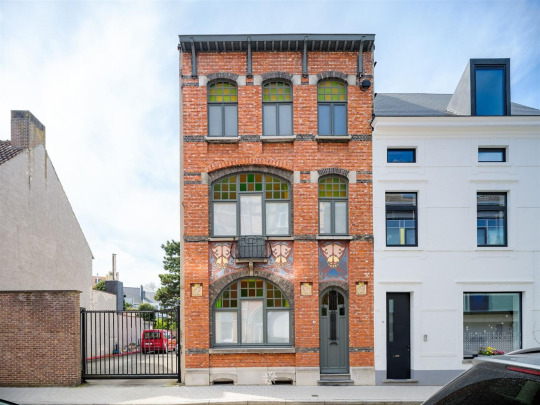

Thanks to degenezijde for sending this classy 1937 renovated Art Nouveau home in Oudenaarde, Belgium. 5bds, 3ba, €698,000 / $762K


Entrance hall with original tile.


A foyer opens out to a cozy, light-filled living room.


The kitchen is a modern black & white with double round sinks, and an opalescent tile backsplash. Classic white Shaker cabinets are interspersed with contemporary glass front cabinets that resemble open shelving, but protect it behind closed doors. Love that idea.


The kitchen has a generously sized eat-in space with doors that open directly to a patio with a pergola.
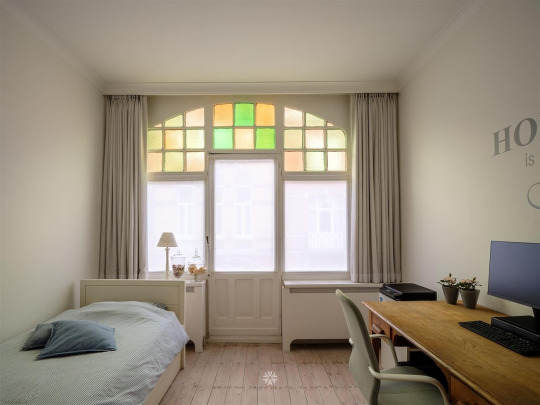
In the front of the building, the original windows w/colored glass panes are still intact and beautifully appear in the bedrooms. It would look so great decorating them in Art Nouveau style and picking up the colors of the glass.

I don't normally do this, but I've never had an Art Nouveau home before. Can you picture this wallpaper on a feature wall? Look at how the colors tie in with the window.

This bedroom is a little larger and has different style windows with a storage unit that could also be a window seat. Art Nouveau style is fancy and classy, this place needs to ditch the straight lined, bland white modern style.

They did a modern black & white bath.

An Art Nouveau tile backsplash would glam it up.

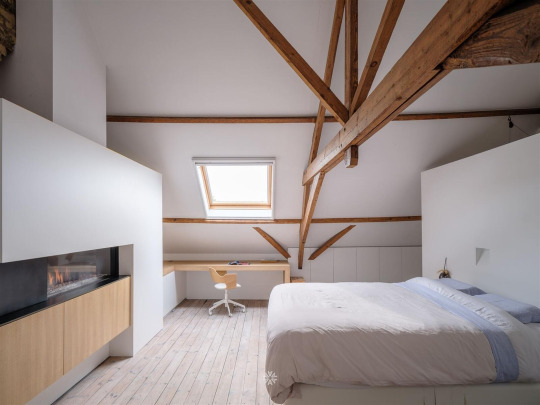

A new primary bedroom is in the attic, has beautiful pitched beamed ceilings, built-in floating night tables, a modern fireplace, and an en-suite bath.

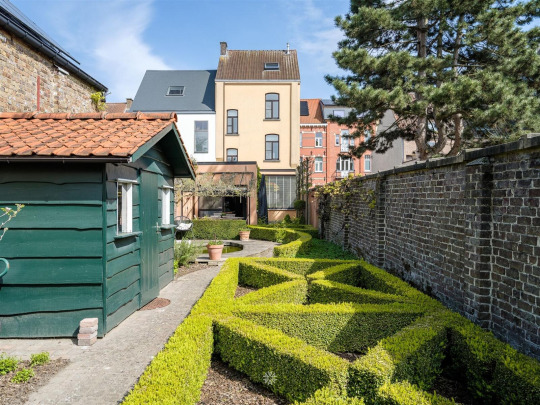
Beautiful yard surrounded by a private brick wall. And, look at the cute little shed.

There's even a patio around a pond. What a great home. So much potential for making it an Art Nouveau showplace.
#art nouveau home#renovated historic home belgium#old house dreams#houses belgium#house tours#home tour#submissions
160 notes
·
View notes
Text


Axel Vervoordt ph. Mariluz Vidal Openhouse magazine issue13
══════ ✾ ══════
Axel Vervoordt ph. Laziz Hamani
Axel Vervoordt has transformed a 17th century military barracks into a minimalist home. This house near Bruges, Belgium, was designed by the designer for an old friend. An absolute aesthete, Johan Vandendriessche, a Belgian real estate entrepreneur, fell in love with the historic building at first sight as easily as a work of art.




16 notes
·
View notes
Text
Something so self-destructive about Formula one, I’ve noticed 🏳




Carlos Sainz to Williams !! Albono and Sainz driver duo !!! Sainz joins Mansell and Prost in racing 3 historic teams (Ferrari, Williams, Mclaren🫡) Can’t talk about Sargent rn...too soon, does Vowles know Williams didn’t have a second chassis earlier in the season, I will not forget how hard I laughed, Sargent indy car when





Let the man sim race !!! , boy-wonder redbull savior yada yada I Love his home races :) Fred Vasseur ! Pourquoi êtes -vous à les Olympique de Paris ?! RÉPARE LA VOITURE ! The confusion of inheriting Belgium gp pole, I think the apple’s rotten right to the core (ferrari self-cannibalism post-Schumacher) Kinda love that Ferrari’s last world champion remains Kimi Räikkönen, no it’s one of the reasons he’s my favorite driver let’s be honest (2007 ily mwah)
#carlos sainz#max verstappen#charles leclerc#ferrari#belgian gp 2024#dutch gp 2024#formula 1#f1#kimi raikkonen#logan sargeant#williams racing#pato o'ward#Spotify
23 notes
·
View notes
Text
Why has Belgium vowed to back the ICJ’s verdict on Gaza ‘genocide’?
Unlike other European nations, Belgium has said it would support the international court’s decisions on South Africa’s case against Israel.
As the world anticipates a preliminary verdict from the International Court of Justice (ICJ) on South Africa’s genocide case against Israel, leaders in the European Union remain divided on how to interpret the decision.
Shortly after the two-day hearing at the world’s top court in the Hague earlier this month, where South Africa told the ICJ that Israel’s actions in the Gaza strip violated the UN’s 1948 Genocide Convention, Germany, Austria and the Czech Republic – staunch allies of Israel – rejected these claims. Hungary condemned the case, while Berlin declared that it would intervene on Israel’s behalf at the ICJ.
Last week, France, which is home to Europe’s largest Muslim and Jewish minorities and has been in the headlines for banning pro-Palestine protests since October 7, chimed in, saying Paris also does not support the ICJ case against Israel.
“To accuse the Jewish state of genocide is to cross a moral threshold,” said French Foreign Minister Stephane Sejourne.
Other EU nations have remained silent on the court case.
Slovenia is an exception, having announced its support for another ICJ case against Israel regarding Palestinian rights.
And, among the bloc’s more outspoken critics of Israel’s military conduct in Palestine, Ireland has adopted a cautious stance. In Spain, the minority left-wing Sumar party in the coalition government backed South Africa’s case.
Last week, in Belgium, socialist politician Caroline Gennez, minister of development cooperation and urban policy, said the country would support to the ICJ’s decision.
“If the International Court of Justice calls on Israel to cease its military campaign in Gaza, our country will fully support it,” she said in a social media post.
At a news conference in Brussels on Friday, Ludivine Dedonder, defence minister, reiterated: “Today, the Belgian government is speaking out in favour of an immediate ceasefire in Gaza, the unimpeded delivery of humanitarian aid, and support for the ICJ.”
What’s behind Belgium’s position?
The prevailing European view since October 7 has been that Israel has a right to self-defence against the Palestinian group Hamas, as long as it stays within the boundaries of international law.
But as the latest escalation of the Israel-Palestine conflict rages on, some Belgian leaders have been more openly critical of Israel’s actions as the Palestinian death toll mounts.
After Hamas attacked southern Israel in early October, killing 1,139 people, Israeli forces have bombarded Gaza, the densely populated Strip Hamas governs with a pre-war population of 2.2 million people. During air attacks and as part of its ground invasion, the Israeli army has killed more than 25,000 people, among them many women and children, and stands accused of widespread atrocities.
In November, the Belgian government, a coalition of seven political parties, said 5 million euros ($5.4m) from the federal government will be used to support the International Criminal Court (ICC) in The Hague to investigate possible war crimes in Israel and Gaza.
Brigitte Herremans, a postdoctoral researcher at the Human Rights Centre at the University of Gent in Belgium, told Al Jazeera the tiny European country traditionally adopts strong positions on international law with regard to the Middle East conflict.
“Observers would say that it also has to do with Belgium’s own history of being occupied historically by foreign powers,” she added.
During both world wars, Belgium was under German occupation.
Herremans said that Belgium’s stance today is similar to its previous positions on other foreign policy issues, such as the Iraq war.
“In general, we always saw Belgium somehow stick to a position that the acquisition of territory by force wasn’t accepted,” she said.
But Marc Botenga, of Belgium’s leftist Workers’ Party and an EU lawmaker, said the government’s support to the ICJ is still limited.
“If you look closely at their statement there is no active attitude to actually support the South African case against Israel. The government just says they will support whatever decision the ICJ takes, which is logical since all member states of the United Nations are supposed to support the institution’s court,” Bottenga told Al Jazeera. “However we have to commend the Belgian public for this stance which other EU nations have not really taken.”
Large protests in different Belgian cities have played a role in pressuring the government to call for a ceasefire in Gaza, he said.
Meanwhile, Belgium has declared its participation in the EU Red Sea Mission against Yemen’s Houthis, the Iran-linked group which says its recent attacks on ships linked to Israel or its allies are aimed at pressuring officials to stop the onslaught of Gaza.
“That’s not the kind of stance we want,” Bottega said of Belgium’s participation.
Herremans said that since Belgium currently holds the presidency of the Council of the European Union – a decision-making body in which ministers coordinate policies and adopt laws – his country is responsible for developing consensus.
“Belgium has to take into account the position of staunch pro-Israeli countries, so [it] might have to be more cautious and less vocal on international law. But it will not take a fundamentally different position from what it always has,” she said.
Belgium’s position on Israel-Palestine
Historically, Belgium has shown solidarity towards Palestine while also supporting Israel.
At the UN in 2012, it voted in favour of giving Palestine “non-member” observer status. Last year, it supported a UN resolution ordering the ICJ to investigate the Israeli occupation of Palestinian territories.
But discussing the Israeli-Palestinian issue in the Parliament can be difficult, because of diverse views between political parties in the Flanders in the north, Wallonia in the south, and the Brussels region.
Some Belgian sources told Al Jazeera that of the seven coalition partners, the progressives – Greens and Social Democrats – believe concrete measures have to be taken to ensure international law is applied in the Gaza Strip and the occupied West Bank with regard to the ICJ case.
In recent months, the Flemish Liberal Party of Prime Minister De Croo and Flemish Christian-Democrats have also toughened their stance on the situation in Palestine.
In November, the premier described Israel’s campaign in Gaza as “disproportionate” as he condemned the army’s bombing of Gaza refugee camps.
But the French-speaking Liberal Party, to which the foreign affairs minister belongs, has traditionally been pro-Israel.
Elections
Looking ahead, Belgium heads to the polls in June, which could end up shifting the country’s stance if a new government comes into power.
Fourat Ben Chikha, vice president of the senate, the federal parliament’s upper house, told Al Jazeera that even if the current coalition changes, as an international community, de-escalation and respect for human rights and international law should be every Belgian government’s priority.
Willem Staes, senior Middle East adviser at 11.11.11, a Belgian international solidarity organisation which lobbies Belgian and European governments to uphold human rights, said that regardless of the Belgian government’s composition, foreign policy has traditionally focused on fighting against impunity and promoting accountability.
“The current government is consequently applying this logic and leading the way at EU level. So providing support to the ICJ and the ICC, or calling for a permanent ceasefire, is not about being ‘pro-Palestinian’ or ‘anti-Israel’,” Staes told Al Jazeera.
“It’s about common sense and choosing the only logical side, which is the side of international law. The fact that this is considered ‘radical’ by some tells you everything you need to know about the state of European politics.”
#international court of justice#icj#belgium#free palestine#palestine#save palestine#gaza#save gaza#free gaza#world news#current events#israel#israel palestine conflict#israeli apartheid#war on gaza#gaza strip#gazaunderattack#gaza genocide#palestinian genocide#ceasefire#stop the genocide#genocide
48 notes
·
View notes
Text
His Last Bow
Originally titled in full "His Last Bow. The War Service of Sherlock Holmes" and later "His Last Bow: An Epilogue of Sherlock Holmes", this was originally published in 1917.
It is the final story in His Last Bow, the final short story in the canon covered by Letters from Watson and agreed by all the key chronologists to be the final canon appearance of Holmes and Watson.
Sir Arthur Conan Doyle had openly supported British entry into the First World War in 1914.
The story came about after a visit to the Western Front in 1916; asked by a French general what Holmes was doing, Doyle had responded that he was too old to serve. He then decided to write this story as a means of boosting morale.
To put it mildly, the British public had gone a bit spy-crazy in the lead up to the war; fearing "Teutons serving them croutons" i.e. Germans living in the UK acting as intelligence agents for the Kaiser.
The Riddle of the Sands is one such work of popular literature on this theme, which is the subject of Letters from Carruthers coming in September.
There was also the fantastical works of William Le Queux, who started off with the French and Russians as his enemies before switching to the Germans; he also had his works serialised in the Daily Mail, a British middle-market tabloid that was founded in 1896 and has been happily engaging in right-wing sensationalism since to the point Wikipedia has banned them as a source. Le Queux for his part believed the Germans were out to get him for exposing their spy networks - he hadn't, they weren't and the Metropolitan Police refused him protection.
The Benz company had produced the first practical motor car in 1885; they of course later merged with Daimler to become Mercedez-Benz. I cannot find a 100hp example of their vehicles.
The German Chancellor in 1914, Theobald von Bethmann Hollweg, was a moderate, who reluctantly went along with many German policies like unrestricted submarine warfare and tried to initiate peace proposals on a number of occasions in the war before being ousted in 1917.
Flushing is the historical English name for the Dutch port of Vlissingen; it had a ferry connection to Sheerness until 1994.
At the outbreak of war, diplomats on both sides were allowed to return home unmolested, after locking down their embassies and burning anything sensitive they could not take with them.
Britain, France and Prussia had signed a treaty in 1839 guaranteeing the neutrality and independence of Belgium. The German invasion of the country on 3 August gave the UK justification for war and moved a Cabinet divided over the matter to firm unity.
There was a fear of Irish civil war at this point; the Liberal government, reliant on Irish and Labour support for a Commons majority after the two elections of 1910, had passed legislation creating a devolved government for the island, called Home Rule. This was vehemently opposed by Ulster Protestants and both sides were receiving weapons - from Germany in fact - in preparation for a fight as Whitehall tried to arrange a compromise. The Germans in fact believed the British would be distracted by a civil war, but in fact the Home Rule legislation was suspended for the duration and both militias decided to support the war effort. That stopped things... until the more radicial Irish Republic Brotherhood launched the Easter Rising of 1916.
"Window-breaking Furies" refers to the suffragette movement that sort votes for women, some of who engaged in direct action like breaking windows and also planting bombs or arson, although they made sure the latter was done when the buildings were empty to avoid killing anyone. These tactics were as controversial at the time as the tactics of modern-day groups like Just Stop Oil. When the war broke out, the suffragettes stopped their militant actions and supported the war effort; their imprisoned members being released as part of an amnesty.
John Bull is a national personification of the UK, typically a stout middle-aged man in a Union Jack waistcoast, frequently seen in cartoons at this time. He rather fell out of popular use post-war and is rarely seen today, unlike Britannia, who remains a widely used figure.
The Rosyth Dockyard was built from 1909 for refitting Royal Navy ships and submarines; although now privatised, it retains that role and is currently building the five Type 31 frigates.
Carlton Terrace was the home of the German Embassy until 1945; after the war, the property and its contents were sold off at auction. The Federal Republic of Germany set up at Belgrave Square in 1951 and remains there to this day.
Junkers were the land-owning aristocracy of Prussia, who exercised considerable political power up until 1945, at which point most of their holdings ended up in the USSR, Poland or what became East Germany. The land was broken up, usually ending up in collective farms; accused of war crimes, those Junkers who ended up in Soviet hands frequently ended up in NKVD camps or even executed. Their descendants did not get them back after reunification.
The King's English is another name for Received Pronunciation, the "standard" dialect and accent of British English.
Tokay or Tokaji is a sweet wine from the Tokaj regions of Hungary and Slovakia, the designation being protected under EU law in a similar way to Champagne. Imperial Tokay, which was the highest quality Tokaji Essencia, was reserved for the Austrian imperial cellars, often being passed to other European monarchs as gifts. This stuff is still drinkable after over 200 years and even the relatively new stuff isn't cheap.
A naval flotilla would be based at Harwich in both World Wars.
The reference to Holmes being sixty here is where the common estimate of 1854 being his birth year comes from.
Portland is a prison and young offenders' institution in Dorset. Notable past inmates include George Edalji (whose miscarriage of justice was exposed by Doyle), John Babbacombe Lee ("The Man They Couldn't Hang") and the controversial comedian Roy "Chubby" Brown.
Fratton is an area of Portsmouth.
In reality, the Home Section of the Secret Service Bureau, later MI5, had managed to identify the key German agents by monitoring their postal correspondence. The police then rounded them up in August 1914 and once the cross-sea cables were cut, contact with any agents in the UK became close to impossible. Little intelligence of any use came from them in any event; the Germans seem to have not even been aware of the British Expeditionary Force being sent to France, which was hardly a small event. Gustav Steinhauer, head of German naval intelligence's British section, got subjected to a rant about his agency's incompetence from the Kaiser that lasted the better part of two hours.
Twelve German spies would be executed during the war, eleven by firing squad at the Tower of London, which hosted its final execution (also of a spy) in 1941.
Skibbareen is a town in County Cork, now in Ireland.
The final speech by Holmes at the end also featured in the 1942 Basil Rathbone film Sherlock Holmes and the Voice of Terror, based on this story.
So Holmes and Watson drive off into the sunset. What happened to them after that? All we know is that both survived the war and at some point Dr Watson stopped writing about his dear friend. They deserve to have had a long retirement.
I will be doing these for the individual chapters of the novels next year; I have already done ones for the first two chapters of A Study in Scarlet that I will repost.
47 notes
·
View notes
Text
The war would be over by Christmas. That was what everyone said, when Britain, France, and Germany went to war in August 1914. Maybe that’s why, by the start of December, with no victory in sight, there was a pause in the fighting along parts of the Western Front stretching from Belgium through France. And maybe that’s why, when singing broke out in the trenches on Christmas Eve, soldiers on both sides decided to risk a walk up into no man’s land and even, in one recorded case, a soccer kickabout. Troops on both sides sang “Silent Night” as snow began to fall.
The truce was never formally declared by any power. Although Pope Benedict XV had called for a cease-fire earlier in the month, it had been rejected by all parties. France and Belgium had little appetite for a truce with an invading army. And in a war between global, multiethnic empires, there was little agreement about the timing or the meaning of a Christmas truce for soldiers who were Muslim, Sikh, Jewish, Hindu, or Shinto. Even for Eastern Orthodox troops on the Eastern Front, Christmas would be a few weeks later.
Instead, there were spontaneous truces along the front lines. While both sides engaged in singing, many Germans had reportedly decided not to take any action from Dec. 25 to 27. In France, near Laventie, German soldiers started putting up Christmas trees along their trenches on the 23rd and their officers requested a meeting with their British counterparts. In their book, Christmas Truce, Malcolm Brown and Shirley Seaton report that the German officers “proposed a private truce for Christmas Eve and Christmas Day” that the British officers accepted. Similar informal arrangements were made up and down the front lines, with different results in different sectors.
The informal nature of the truce meant that not everyone participated. This is partly why the truce has now attained a mythical quality—many who were on the front did not experience it and so doubted that it had taken place. Even where peace seemed to prevail, officers worried that “the truce will probably go on until someone is foolish enough to let off his rifle.”
Across the Western Front, the Christmas truces came to an end at different points. By the 27th, rain had resumed and the soldiers were once again knee-deep in mud. Along some parts of the line, fighting resumed in January. But one soldier wrote home that part of the front near Ploegsteert in Flanders didn’t really see any action from the Christmas Truce until mid-March. The Battle of Neuve Chapelle in March 1915 definitively shattered the peace. Attempts for an Easter truce in early April were largely ignored.
The Christmas Truce that took place in the first December of World War I has transcended historical curiosity to become a feature of popular memory. Pop songs, TV shows, and even ads have all made reference to the events of December 1914. Why has it adhered in this way? What has it come to symbolize, more than 100 years on?
Regular truces were a typical part of pre-modern warfare. Staged battles left time for clearing the field, burying the dead, and regrouping. Informal encounters between soldiers did not always lead to fighting, and impromptu Christmas truces occurred in the U.S. Civil War and the South African War in 1899. In a way, the Christmas Truce appeals because it seems to point to the last moment of an older form of warfare. Given the horrors of the war to come, it seems poignant in its innocence.
The popularity of the Christmas Truce of 1914—even though it was not repeated for the rest of World War I—was not just as a token of nostalgia, though. It was also responsible for creating something new: the idea that there should be a Christmas truce.
One of the enduring legacies of World War I was the shift from an approach to humanitarian principles and human rights that was “episodic, empathic, and voluntary” to, as one scholar put it, a “permanent, professionalized, and bureaucratic” responsibility of states operating in a transnational network. Alongside these developments in humanitarian organizing, truces moved out of the realm of improvised, informal agreements between soldiers. Instead, they were called for and negotiated by states and transnational peace organizations. And they did so with the Christmas Truce of 1914 as a model.
For instance, in 1965, in the midst of the escalating Vietnam War, the Viet Cong proposed a Christmas cease-fire. Meant to parallel the cease-fire that had accompanied the Vietnamese Lunar New Year celebrations earlier in the year, it was embraced back at home and internationally by the peace movement. The truce was arranged with some skepticism on the ground. Even more so given the previous year’s Christmas Eve bombing of a hotel where many U.S. officers were staying. The truce was agreed to and formally communicated to both sides.
A newspaper report from the cease-fire explicitly echoed the coverage of the 1914 truce. “It was quiet—the guns of war were stilled by a Christmas truce for the first time in almost a year,” the paper reported. “And from the top of the hill, the words of ‘silent Night’ wafted down” as the men rested their rifles on their foxholes and contemplated what the Viet Cong forces made of the song.
At the end of the 48-hour pause, both sides accused each other of violating the cease-fire. Radio Hanoi reported that “in complete disregard for their proclaimed Christmas truce, the U.S. imperialists Sunday sent many flights of aircraft.” The U.S. argued that these were reconnaissance flights, rather than bombing raids, and that the “Communists had launched at lease 60 small attacks.”
What the soldiers of World War I accidentally stumbled on was a new form of propaganda. Christmas cease-fires build morale among the troops, but also more widely. A key feature in the rhetoric of war is convincing your side that the opposing side is not just wrong, but bad. Truces and cease-fires play into this: The side proposing the cease-fire paints itself as humane. Violations of the cease-fire are fodder for arguments that the violators are inhumane.
In foreign policy, the Christmas Truce endured because it turned out to be good for both international and domestic public relations. But as a result of this realization, Christmas cease-fires also became more top-down. While the soldiers were responsible for organizing spontaneous truces along the front lines in 1914, the Christmas truces of the Vietnam War and other more recent conflicts have been ordered by leaders, often in response to international pressure. In Vietnam, despite suspicion among U.S. troops that the Viet Cong “took advantage of the truce” to rearm and resupply its forces in the south, the Christmas truce was often implemented. While this provided respite and a chance for point-scoring in the media, some U.S. soldiers were left asking, “What good would it do?”
And they asked that with good reason. Christmas—and other religious holidays—have been just as likely to mark the beginning of a campaign, taking advantage of the enemy’s hope for some respite. George Washington crossed the Delaware River on Christmas 1776, surprising the British-allied Hessian troops in Trenton. During the Tet Offensive in the Vietnam War, the Viet Cong took advantage of the Lunar New Year in 1968 to attack while many of South Vietnam’s soldiers were on holiday leave. And then-U.S. President Richard Nixon broke the expected Christmas Truce tradition in 1972 when the U.S. launched its largest B-52 raid on North Vietnam in the course of the war. The Yom Kippur War in Israel began on the Jewish holiday in 1973. Operation Ramadan in the Iran-Iraq War launched to coincide with the holy month in 1982.
This explains the unease of the leadership in December 1914. In Laventie, one group of British soldiers was about to withdraw from the trenches on the 26th when a German deserter, taking advantage of the truce, crossed to warn them that an attack was imminent. The British soldiers fired artillery at the German trenches and then lay in wait for the attack. But it never came. And the Germans, put on alert by the artillery fire, similarly had spent the night in anticipation of a British attack.
In fact, while the 1914 Christmas Truce saw soldiers sharing tobacco and wine, Christmas puddings and songs at scattered locations along the trenches in Belgium and France, the Germans dropped their first aerial bomb on Britain, at Dover on Christmas Eve. On Christmas Day, the British used seaplanes to attack the Imperial German Navy, stationed in the harbor of Cuxhaven.
The 1914 Christmas Truce in particular has been read in popular culture as a moment when soldiers rejected their officers’ orders and rejected the nationalist propaganda that they had been exposed to, which demonized their opponents. The Christmas Truce appeals to the idea that ordinary people would get along if only they weren’t ordered to fight each other by their governments. In 1914, soldiers ignored officers and took risks to make human connections with people they were supposed to hate.
Christmas truces have subsequently become a regular prop in international diplomacy. In conflicts ranging from the Philippines to Colombia, Sudan to Ukraine, it’s hard not to see the Christmas Truce as having retained its mythical status precisely because of its usefulness as propaganda. Perhaps it would be better to remember the Christmas Truce as one poem concluded in January 1915: “God speed the time when every day/Shall be as Christmas Day!”
21 notes
·
View notes